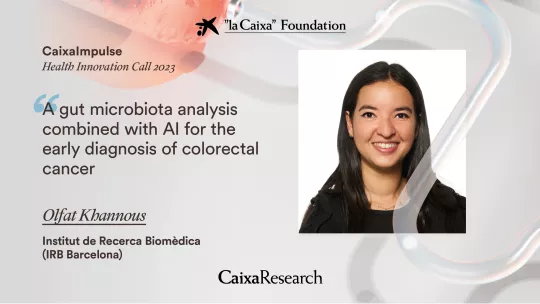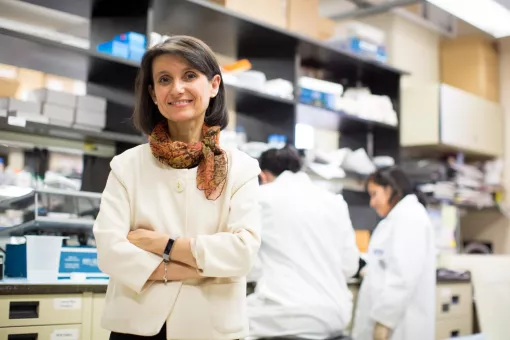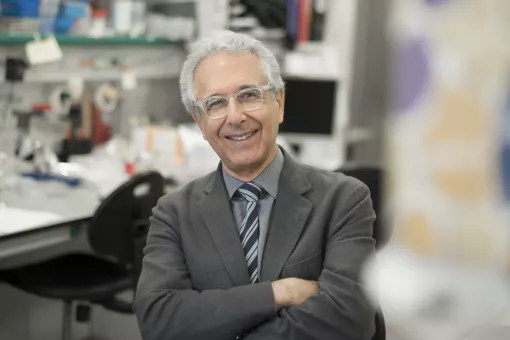Images
“la Caixa” Foundation finances an IRB Barcelona project addressing the analysis of intestinal microbiota combined with Artificial Intelligence (AI) for the early diagnosis of colorectal cancer.
This is one of the 29 innovative biomedical projects with the potential to reach the market and society that have been financed within the framework of the 2023 call of the CaixaImpulse Innovation programme.
Barcelona, 17 October, 2023 - Colorectal cancer is the second most common cause of cancer mortality across the world. Every year 1.9 million cases are diagnosed. Preventive measures and early diagnosis can save many lives and ensure a better quality of life for patients.
Routine screening of populations above a certain age is being implemented worldwide. Current detection systems consist of a two-step procedure with a non-invasive test (which detects the presence of blood in stool), followed by a colonoscopy if the first test is positive.
Although effective, this approach results in many false positives (>60%) and places a large burden on the healthcare system, hospitals, doctors, and patients.
”la Caixa” Foundation has granted 150,000 euros to IRB Barcelona to develop the project entitled “Intestinal microbiota analysis combined with AI for the early diagnosis of colorectal cancer”, led by Olfat Khannous, predoctoral researcher in the Comparative Genomics group, headed by ICREA researcher Dr. Toni Gabaldón (IRB Barcelona-Barcelona Supercomputing Center).
This is one of the 29 biomedical innovative projects with the potential to reach the market and society that have been financed by ”la Caixa” Foundation within the framework of the 2023 call of the new CaixaImpulse Innovation programme. The initiatives will be developed in 20 research centres, hospitals, and universities in Spain and Portugal.
The IRB Barcelona project applies an innovative approach that combines an analysis of the intestinal microbiota with classification algorithms based on artificial intelligence, with the aim to improve current detection systems and reduce the number of unnecessary colonoscopies.
Designed to adapt to the existing detection protocols in the European Union, this is a new test allows the same stool sample to be used to detect microbial markers. Its implementation in screening campaigns would reduce unnecessary colonoscopies by up to 30%, as it would detect cases of colorectal cancer and high-risk pre-cancerous lesions.
The team has already validated the prototype test with more than 3,000 samples from patients who also had the results from colonoscopies. In this phase of the project, the team will work towards advancing this promising technology towards clinical validation.
CaixaImpulse Innovation provides support to biomedical projects with regard to innovation and transfer, helping researchers to validate their assets and define their exploitation and valorization strategy to bring the projects closer to the market. In addition to financial support, the awardees will also have access to mentoring, consultancy and support from international experts in a variety of fields in the innovation ecosystem.
About IRB Barcelona
The Institute for Research in Biomedicine (IRB Barcelona) pursues a society free of disease. To this end, it conducts multidisciplinary research of excellence to cure cancer and other diseases linked to ageing. It establishes technology transfer agreements with the pharmaceutical industry and major hospitals to bring research results closer to society, and organises a range of science outreach activities to engage the public in an open dialogue. IRB Barcelona is an international centre that hosts 400 researchers and more than 30 nationalities. Recognised as a Severo Ochoa Centre of Excellence since 2011, IRB Barcelona is a CERCA centre and member of the Barcelona Institute of Science and Technology (BIST).







